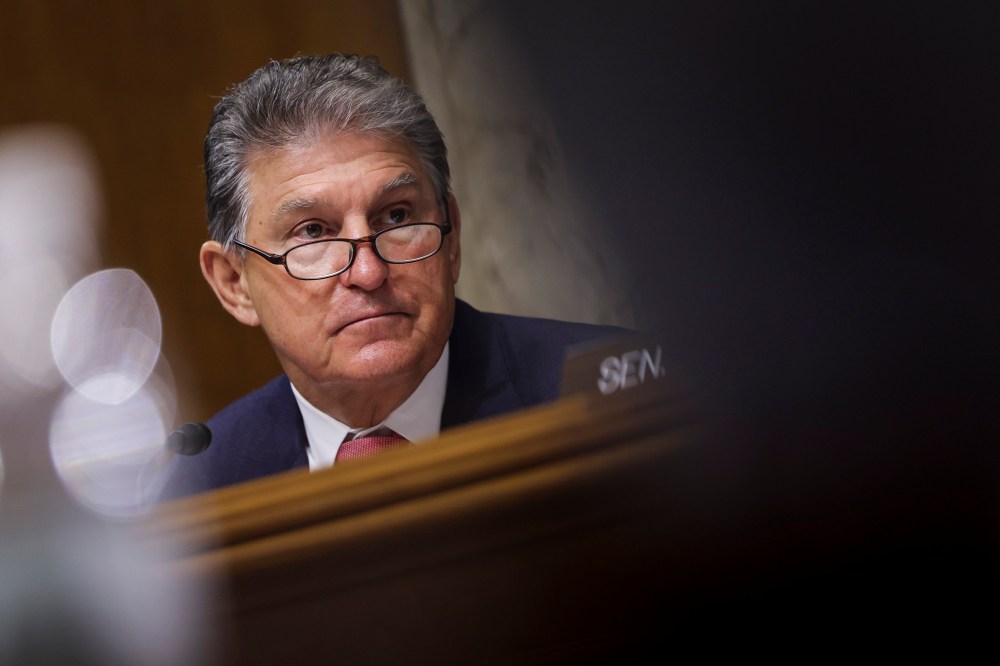When Democratic leaders began discussions about a possible Build Back Better package last year, there was some preliminary talk about a transformative bill totaling $6 trillion over 10 years. As the talks continued, that total was negotiated down to $3.5 trillion. Or maybe $1.8 trillion. Make that $1 trillion.
As the legislation’s ambitions narrowed in recent months, the prospects for success appeared to improve. Democrats worked on the framework Sen. Joe Manchin said he wanted — a bill that would combine a prescription drug plan, new measures to address the climate crisis, and tax reforms — and after the Congressional Budget Office delivered good news to the party two weeks ago, there was cautious optimism about a breakthrough victory.
The Washington Post’s Greg Sargent reported that the details on climate policy were very nearly complete, with negotiators’ haggling “down to minor points.”
All of which made it that much more brutal when the conservative West Virginia Democrat scuttled his own deal, telling party leaders that he’ll accept the part of the package that he likes — helping consumers by allowing Medicare to negotiate lower prices on prescription medication — but not the climate or tax elements that Democrats have prioritized.
To hear Manchin tell it, some of the reporting has painted a misleading picture. The senator appeared on a radio program on Friday morning and tried to make the case that position is nuanced: He said that he’d told Senate Democratic leaders if the party wants to advance legislation ahead of the August recess — a top White House priority — they’ll have to go with a bill that focuses on drug prices and health care. If, however, they also wanted a climate bill, Democrats would have to wait — until after Manchin saw next month’s inflation data, at which point he’d think about it anew.
For Democratic leaders, this isn’t a credible option, not only because Manchin’s request was unserious — the future of U.S. climate policy should not hinge on one senator’s perceptions of a monthly inflation report — but also because the calendar is not on the party’s side. Democrats are eager to get a semiconductor bill through Congress quickly, as well as a reconciliation package before the Aug. 8 break, ahead of a budget vote in September.
But timing is only part of the bigger picture: With Manchin backing away from the framework he endorsed, many Democrats concluded that there simply wasn’t any point to holding another month of talks with a senator who doesn’t seem to want a deal. Put simply, the party no longer believes the West Virginian is negotiating in good faith, so they’ve decided to stop trying.
The party’s patience has run out.
















